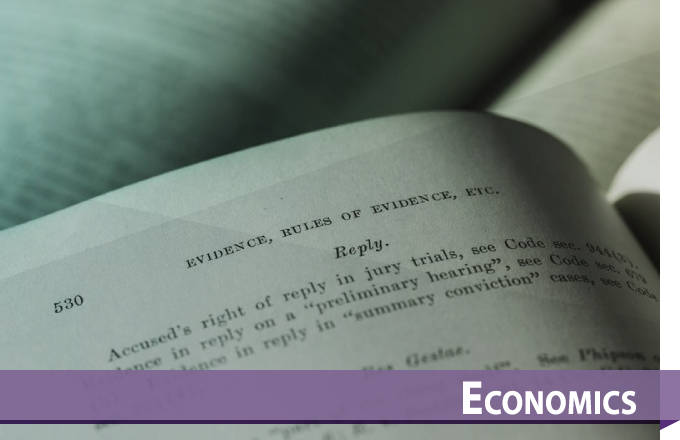Despite the importance of customer participation in new product development in business-to-business markets, its specific challenges and potential downsides are under-examined. Drawing on the boundary theory perspective, this study integrates conflict into the customer participation literature and proposes that whereas customer participation as the information provider (CPI) mitigates customer-developer conflict, customer participation as the codeveloper (CPC) increases it. Furthermore, the nature of new products moderates such effects. Market newness attenuates the role of CPI in mitigating conflict and reduces the positive effect of CPC on conflict; by contrast, technology newness increases the influence of CPC on conflict. The empirical results from a sample of 181 high-tech firms in China largely support these propositions, which offer important implications for customer participation research and practices.
March 2020
Journal of Business Research
We study the effects of institutionalization on fund manager compensation and asset prices. Institutionalization raises the performance-sensitive component of the equilibrium contract, which makes institutional investors effectively more risk averse. Institutionalization affects market outcomes through two opposing effects. The direct effect is to bring in more informed capital, and the indirect effect is to make each institutional investor trade less aggressively on information through affecting the equilibrium contract. When there are many institutions and little noise trading in the market, the indirect contracting effect dominates the direct informed capital effect in determining market variables such as the cost of capital, return volatility, price volatility, and market liquidity. Otherwise, the direct informed capital effect dominates.
March 2020
Journal of Economic Theory
This paper develops a quantitative model of multinational production (MP) with non-neutral technologies incorporating two stylized facts observed in a global firm-level data: first, larger firms on average use more capital-intensive technologies; second, among firms producing in the same industry and country, those from more capital-abundant home countries use more capital-intensive technologies. I quantify the model using both firm-level and aggregate moments for 37 countries. I found that the reduction in MP costs accounts for 56% of the average decline in labor shares from 1996 to 2011, and the model also replicates a negative relationship between the change in a country's labor share and the change in the foreign affiliates' output share as observed in the data.
March 2020
Journal of International Economics
It is well known in the credence‐good literature that in an expert‐client relationship, under the Liability assumptions, clients have to reject the expert’s serious‐treatment recommendations with a positive probability to ensure that the expert honestly recommends treatments. Inefficiency arises because some socially efficient treatments are not provided. We show that the expert can enhance clients’ trust, or acceptance rate of the serious treatment, by providing intrinsically socially inefficient customer service upon recommending the serious treatment. Enhanced clients’ trust leads to higher efficiency and higher profit for the expert. However, trust cannot be enhanced by providing customer service with different timing.
March 2020
The Journal of Industrial Economics
The objective of this paper is to use mathematical modeling and analysis to develop insights into and policies for making bed allocation decisions in an intensive care unit (ICU) of a hospital during periods when patient demand is high. We first develop a stylized mathematical model in which patients’ health conditions change over time according to a Markov chain. In this model, each patient is in one of two possible health stages, one representing the critical and the other representing the highly critical health stage. The ICU has limited bed availability and therefore when a patient arrives and no beds are available, a decision needs to be made as to whether the patient should be admitted to the ICU and if so, which patient in the ICU should be transferred to the general ward. With the objective of minimizing the long-run average mortality rate, we provide analytical characterizations of the optimal policy under certain conditions. Then, based on these analytical results, we propose heuristic methods, which can be used under assumptions that are more general than what is assumed for the mathematical model. Finally, we demonstrate that the proposed heuristic methods work well by a simulation study, which relaxes some of the restrictive assumptions of the mathematical model by considering a more complex transition structure for patient health and allowing for patients to be possibly queued for admission to the ICU and readmitted from the general ward after they are discharged.
March 2020
Operations Research
This study uses two distinct quasi-natural experiments to examine the effect of institutional shareholders on corporate social responsibility (CSR). We first find that an exogenous increase in institutional holding caused by Russell Index reconstitutions improves portfolio firms’ CSR performance. We then find that firms have lower CSR ratings when shareholders are distracted due to exogenous shocks. Moreover, the effect of institutional ownership is stronger in CSR categories that are financially material. Furthermore, we show that institutional shareholders influence CSR through CSR-related proposals. Overall, our results suggest that institutional shareholders can generate real social impact.
February 2020
Journal of Financial Economics
The present research proposes a new perspective to investigate the effect of product anthropomorphism on consumers’ comparative judgment strategy in comparing two anthropomorphized (vs. two nonanthropomorphized) product options in a consideration set. Six experiments show that anthropomorphism increases consumers’ use of an absolute judgment strategy (vs. a dimension-by-dimension strategy) in comparative judgment, leading to increased preference for the option with a more favorable overall evaluation over the option with a greater number of superior dimensions. The effect is mediated by consumers’ perception of each anthropomorphized product alternative as an integrated entity rather than a bundle of separate attributes. The authors find the effect to be robust by directly tracing the process of participants’ information processing using MouseLab software and eye-tracking techniques, and by self-reported preferences and real consumption choices. Moreover, the effect is moderated by the motivation to seek maximized accuracy or ease. These studies have important implications for theories about anthropomorphism and comparative judgment as well as marketing practice.
February 2020
Journal of Consumer Research
Although research shows that competitive banks spur corporate growth, less is known about the impact of bank competition on corporate risk. Using a sample of more than 70,000 firm-year observations covering the period from 1975 through 1994, we find that deregulation that intensified competition among banks materially reduced corporate risk, especially among firms that rely heavily on bank finance. We find that competition-enhancing bank deregulation reduced corporate volatility by easing credit constraints when firms experience adverse shocks and reducing the procyclicality of borrowing.
February 2020
Journal of Corporate Finance
The lack of hard evidence in allegations about sexual misconduct makes it difficult to separate true allegations from false ones. We provide a model in which victims and potential libelers face the same costs and benefits from making an allegation, but the tendency for perpetrators of sexual misconduct to engage in repeat offenses allows semiseparation to occur, which lends credibility to such allegations. Our model also explains why reports about sexual misconduct are often delayed, and why the public rationally assigns less credibility to these delayed reports.
February 2020
American Economic Journal: Microeconomics

























